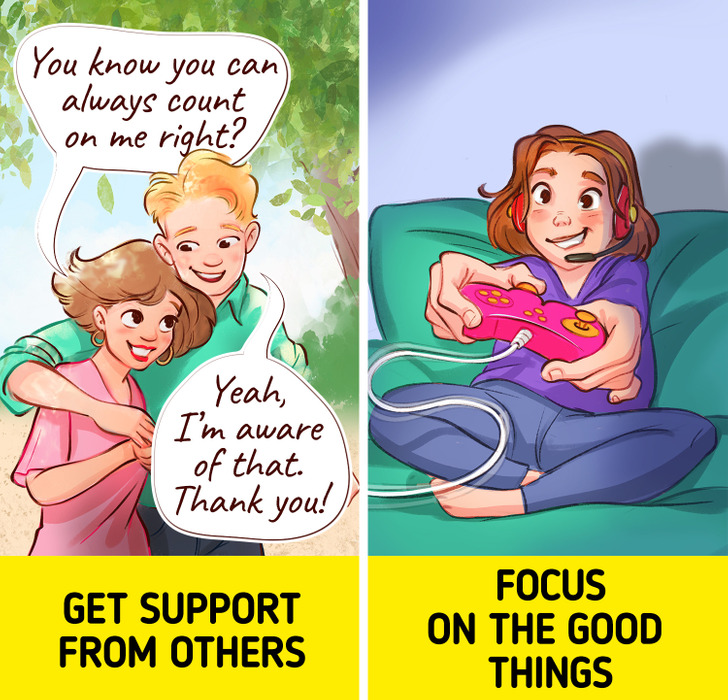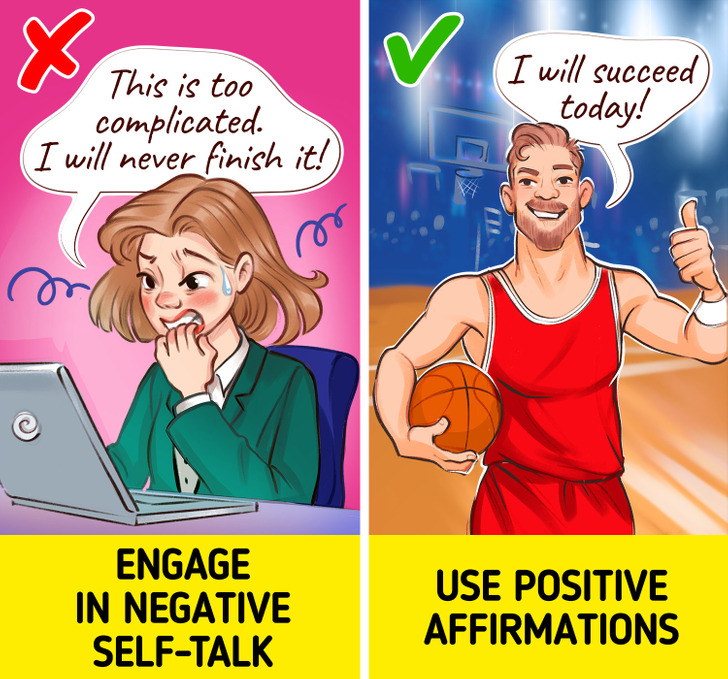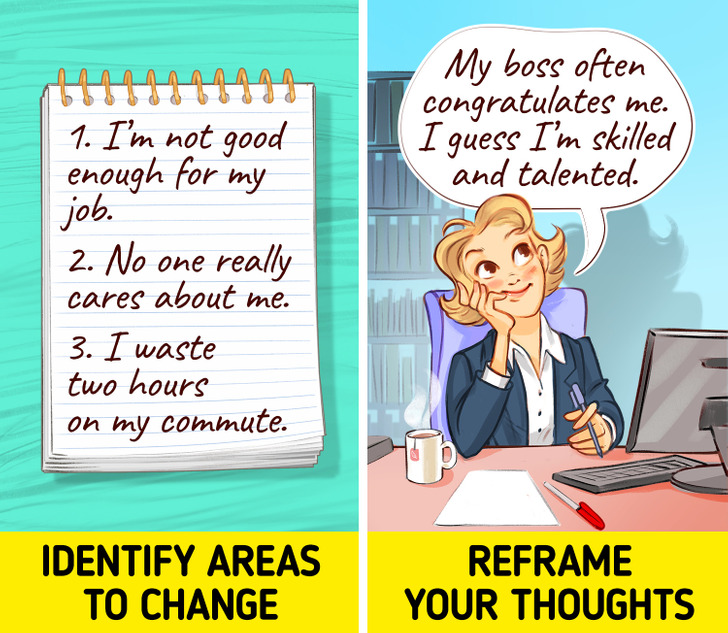8 Psychologist-Approved Habits You Can Use to Be More Optimistic

Optimism means expecting good things to happen, which might prove difficult to do during hard times. However, it’s important to have an optimistic outlook on life because this attitude is associated with certain health benefits, including better mental and physical well-being.
5-Minute Crafts will provide some practical tips on how to become a more optimistic person.
1. Acknowledge the negative but stay positive

Being optimistic is not just about focusing on the silver lining while ignoring negative things in your life. Research has shown that acknowledging reality is essential, even when things aren’t going great. It’s all a matter of identifying where you stand and accepting your challenges.
There are some strategies you can follow to stay positive while facing difficulties:
- Build a support system: Find help from your loved ones instead of forcing yourself to find the bright side in everything, which will only add unnecessary pressure.
- Practice self-compassion: You can picture yourself as a friend in need of comfort. You would probably recognize their feelings, offer support, and let them know things will be alright.
- Switch the optics: This simply means changing your perspective. For example, if someone cancels plans with you, focus on how this will free up time for an activity you enjoy.
2. Challenge negative thoughts with positive self-talk

We tend to be our own worst critics, which can lead us to develop a deep-rooted negative opinion of ourselves in our minds. In order to stop this, you should be mindful of the negative thoughts in your head and respond with positive self-talk. For example, instead of saying, “I’ll never be good at this,” you can try rephrasing it as “I’ll give it another try” to reframe your thoughts.
Another way of seeing this is following a simple rule: Don’t say anything to yourself that you wouldn’t say to another person, which is all about being gentle. So if you’re facing any negative thoughts, you can evaluate them rationally and counter-balance them with positive affirmations about yourself.
3. Recognize your areas of negativity

Identifying areas of your life that you usually see in a negative light is an excellent way of becoming more optimistic. First, you can create a list of those areas, which could include work, relationships, or even your daily commute. Then, focus on one of them and try approaching it in a more positive way, like for example, your long daily commute can be seen as an opportunity to listen to a fun podcast.
If you’re not sure where to start, you can always ask a trusted person for their insight. For instance, a colleague might notice you tend to be negative about meeting deadlines. Also, a partner might notice you think you’re not a good driver. Whatever area it is, just make sure you tackle one of them at a time.
4. Practice gratitude and keep a journal

Gratitude means appreciating people, moments, or things that bring you some kind of comfort or happiness, which can include a helpful coworker or your loyal dog. Since this practice has been shown to reduce stress and promote resilience, you should try having grateful thoughts at least once a day.
If you want to read an actual list of positive things, you can keep a gratitude journal. Studies have found that this habit can lead to a more positive mood, thus improving optimism. The good news is that this doesn’t have to be a lengthy or arduous task: you simply have to notice the little things around you.
- Tip: You can also create a ritual in which you start your day with an uplifting activity. For example, you can listen to a happy song or give someone a nice, genuine compliment.
5. Be aware of media consumption

Considering the amount of time that people spend on social media, you should be mindful of the things that you see online. Being exposed, for too long, to unrealistic images, can lead you to believe you’ll never be enough or as great as these public personas, so you should stop comparing yourself to perfectly edited and curated images. Remember that they’re not really an accurate reflection of reality.
Also, you should be careful about the news. It’s perfectly fine and healthy to reduce your exposure to distressing reports, so you can switch it off if that’s what you need. Less time tuning in to the news will do wonders for your mental health.
6. Open yourself up to humor

It’s important to be open to humor by smiling or laughing, especially when navigating difficult moments. You’ll soon discover that you will feel less stressed if you seek humor in everyday events.
When you give yourself permission to laugh, your mood is instantly lightened and things seem less overwhelming. Research has found that laughter reduces stress and anxiety, as well as improves coping skills and self-esteem. You can even improve your mood if you pretend or force a good laugh.
7. Spend time with positive people

Surrounding yourself with positive people can help give you a new perspective you hadn’t considered before. For example, you can learn new coping mechanisms and discover how others find the bright side when dealing with negative stuff.
Both negativity and positivity are contagious, so make sure you stay surrounded by optimists. Besides giving advice and offering support, positive people can improve your self-esteem and increase the odds of reaching your goals. Keep them close to lift your spirits and help you see the glass half full.
8. Make optimism a habit

You can’t expect to become an optimist overnight if you’re naturally more inclined to have a negative view. However, with consistency, you will eventually reduce your own negative self-talk and see the world in a more positive light. Also, you’ll handle everyday stress in a more constructive way.
You should see becoming more optimistic like any other habit: it requires a dose of motivation and practice so it can feel natural over time (like riding a bike). In order to do this, you should first try small steps, so you don’t feel too far out of your comfort zone.